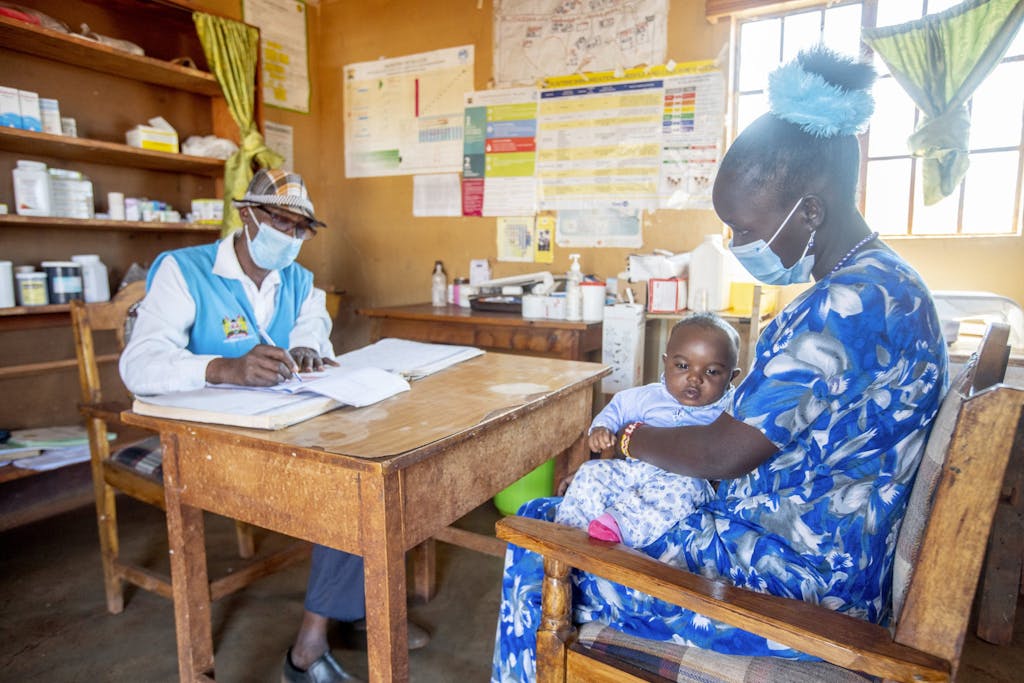Keeping Communities Healthy in 2020
In 2020, Food for the Hungry (FH) staff, supporters, and communities around the world quickly and nimbly adapted our programs. FH worked at global, country, and local levels to effectively respond to the challenges of COVID-19.
The core of FH’s mission has always been responding where needed most. FH’s supporters enable strategic action to impact vulnerable communities and individuals. In that sense, FH’s work in 2020 was simply an extension of our calling to end all forms of human poverty. The generosity of our partners and supporters, innovation of our staff, and determination of the communities we work with made this possible, even against the backdrop of a pandemic.
COVID-19 Response in Kenya
Kenya’s first case of COVID-19 was diagnosed in March 2020. Social distancing quickly became a primary line of defense against the virus. Many organizations – including FH Kenya – responded by asking employees to work from home to reduce the risk of exposure. This presented new challenges to the FH Kenya staff. The first issue was finding a way to continue to reach underserved communities in Marsabit while working with them from a distance. FH Kenya formulated an initial pandemic response.
The World Health Organization recommended regular handwashing with soap and water as a leading tool in the battle to stop the spread of the coronavirus that causes COVID-19. But handwashing stations were uncommon in homes and in the public areas of health centers in Marsabit.
The FH Kenya COVID-19 response plan enabled staff to procure 2,000 handwashing stations locally. Those stations were then delivered to health centers, hospitals, and homes across Marsabit County. As soon as restrictions eased, FH Kenya staff visited several locations in the area. They wanted to learn if these additions had made an impact.
The Results of the Handwashing Stations Were Obvious
In Balesa, North Horr, visiting staff found 14-year-old Ibrahim Sharamo washing his hands at an FH-provided station outside his family’s home in South C Village. “Having the hand-wash station at home is a huge blessing,” said his mother, Robe Sharamo. Robe shared, “My children now have no excuse not to wash their hands before meals and throughout the day.”
At Karare Dispensary in Saku, staff members met 18-year-old Bethany Ilkul. She was visiting the center so her 3-month-old son, Biko, could receive his scheduled infant immunizations. They watched as she thoroughly washed her hands at a handwashing station located at the main entrance to the health center.
The stations have been effective in preventing the spread of COVID-19. But the benefits have exceeded that primary goal, explained Liban Mosor, Karare Dispensary’s Head Nurse. “Diseases caused by unhygienic conditions, such as typhoid and diarrhea, have been dramatically reduced with access to these handwashing stations,” she said.
As efforts to defeat COVID-19 continue, FH continues to brainstorm innovative ways to improve living conditions for the communities served. This includes handwashing stations and much more!
Thank You for Making an Impact in 2020 and Beyond
Bethany’s story is part of our 2020 Annual Report. Thanks to the support of generous donors like you, we and the people we serve are working together to create resilient communities. To see how FH has worked to build resilience in the face of adversity, read the full 2020 Annual Report.
Read more:






